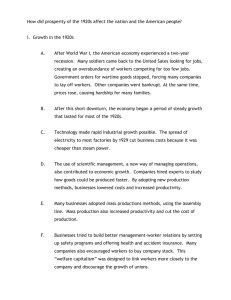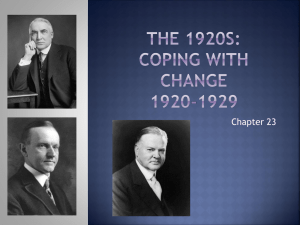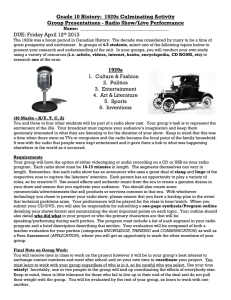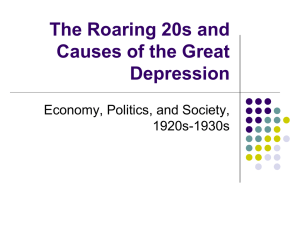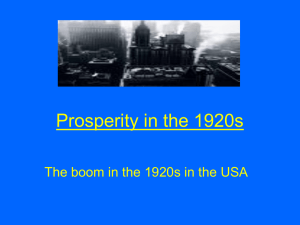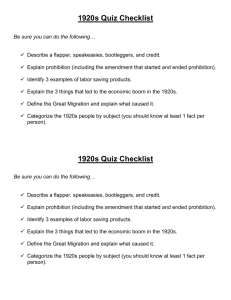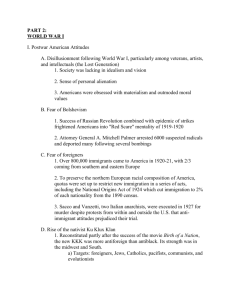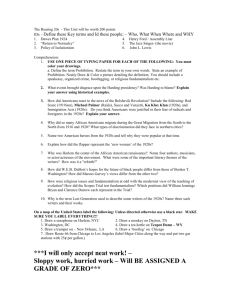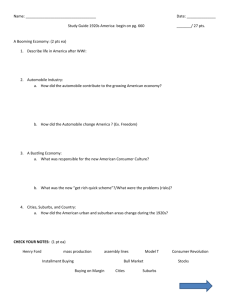Student_Responses_June_2012_-_USA
advertisement
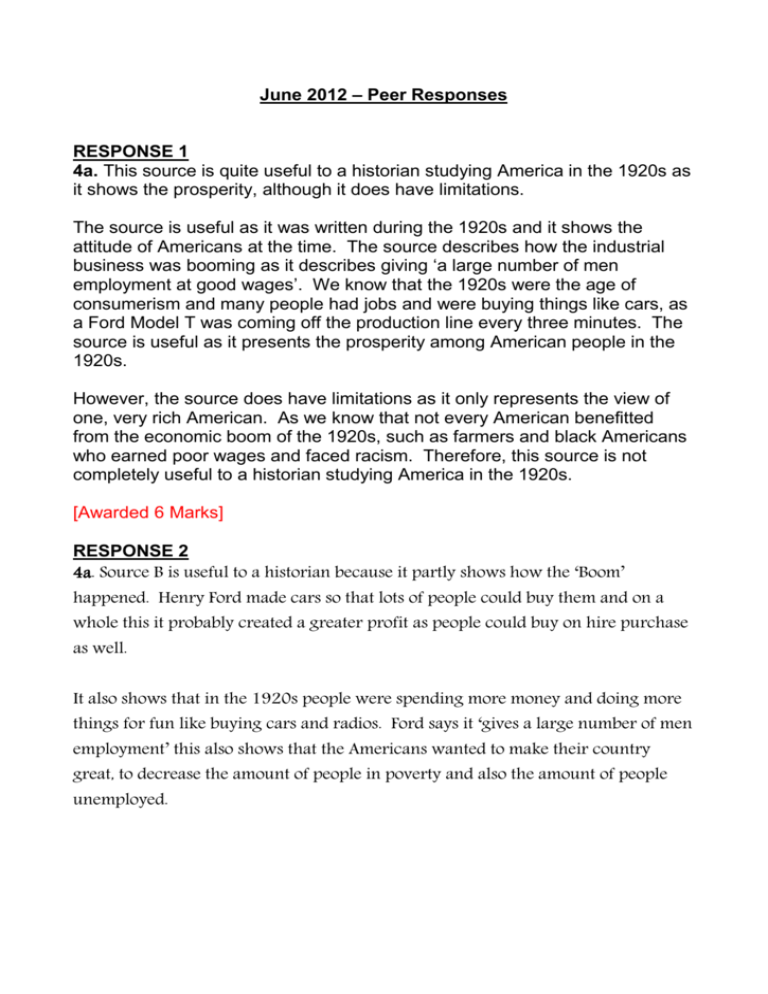
June 2012 – Peer Responses RESPONSE 1 4a. This source is quite useful to a historian studying America in the 1920s as it shows the prosperity, although it does have limitations. The source is useful as it was written during the 1920s and it shows the attitude of Americans at the time. The source describes how the industrial business was booming as it describes giving ‘a large number of men employment at good wages’. We know that the 1920s were the age of consumerism and many people had jobs and were buying things like cars, as a Ford Model T was coming off the production line every three minutes. The source is useful as it presents the prosperity among American people in the 1920s. However, the source does have limitations as it only represents the view of one, very rich American. As we know that not every American benefitted from the economic boom of the 1920s, such as farmers and black Americans who earned poor wages and faced racism. Therefore, this source is not completely useful to a historian studying America in the 1920s. [Awarded 6 Marks] RESPONSE 2 4a. Source B is useful to a historian because it partly shows how the ‘Boom’ happened. Henry Ford made cars so that lots of people could buy them and on a whole this it probably created a greater profit as people could buy on hire purchase as well. It also shows that in the 1920s people were spending more money and doing more things for fun like buying cars and radios. Ford says it ‘gives a large number of men employment’ this also shows that the Americans wanted to make their country great, to decrease the amount of people in poverty and also the amount of people unemployed. So the source shows that American business men wanted to boost the economy as well as making America a better place to live. So it is useful in telling historians what the 1920s were like as it shows their motives. [Awarded 4 marks] RESPONSE 3 4a. Source B is useful because it shows insight into how Henry Ford was able to make a lot of money. To sell ‘large numbers’ of cars and make a ‘small profit’ is how he made his money. More people would be able to ‘buy and enjoy the use of a car’. This tells the historian that more people would be able to afford cars and therefore Ford would make more money. It also tells the historian that men were able to get jobs by Henry Ford’s business, it payed ‘good wages’. As the source is said by Henry Ford himself it shows that what is being said is realy what he believed. The source does have limitations it fails to acknowledge Henry Fords assembly line and that’s how he produced cars and who wrote down what Ford said because it may be someone with a biased view which would make the source inaccurate. [Awarded 2 marks] RESPONSE 1 The message of the cartoon is that businesses where able to benefit from the ‘boom’ and farm workers were not. We can see this from the sign on the farm which says ‘farm for sale’ this suggests that the farmer cannot afford to run his farm anymore and therefore has to sell it. The dollars signs in the clouds coming from the city suggests that business are making money from the ‘boom’. In the 1920s businesses were able to earn a lot of money due to advertising, cheap products were being made such as Henry Fords Model T car. By 1929 the car could be bought for less than $300. Furthermore, businesses were also making money through credit and higher purchase. This allowed them to spend money they didn’t have. Farmers did not benefit from the boom because they were producing too product e.g. wheat This made the value go down dramatically. Bags of wheat droped to less than 36c. [Awarded 7 marks] RESPONSE 2 The message of the cartoon is that factories are taking over from farm land. The factories are producing a lot of smoke with dollar signs on which shows people in factories are working hard and are creating lots of things which earn money. Now in the 1920s America is becoming more revolutionised and the production line was introduced which creates a lot more money and products. The farmer has a ‘farm for sale’ sign up as he is creating no money as farms suffered due to overproduction. Farmers produced too many crops during the war time which meant prices dropped and the crops were worth nothing with shipping tariffs. So farmers were already in trouble before the depression. [Awarded 5 marks].
